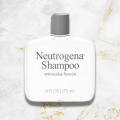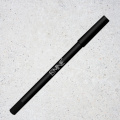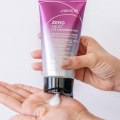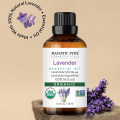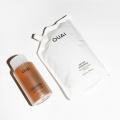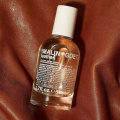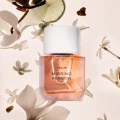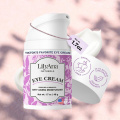Sunflower Oil For Hair: The Secret to Healthy And Strong Mane
Sunflower oil scalp treatment is a great way to revive hair health. Discover the best benefits of sunflower oil for hair and how to use it to reap all its benefits.
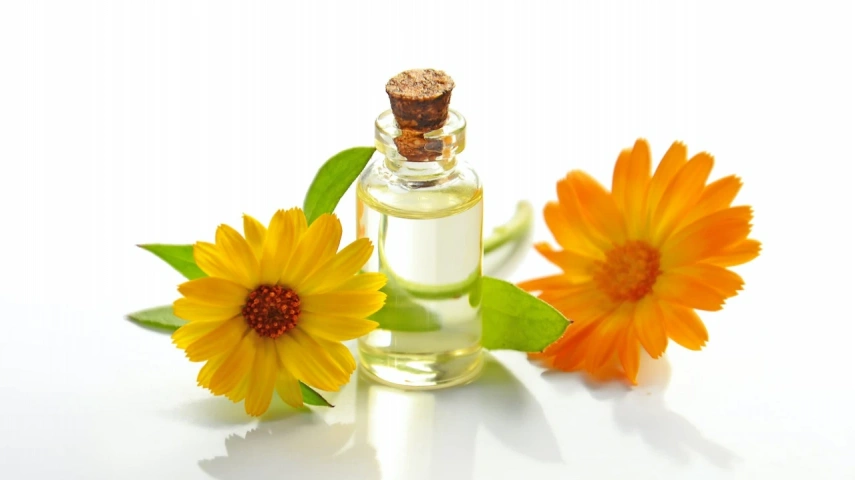
Hair oiling is an ancient hair care ritual that is passed down through generations. The practice of pouring natural oils through your hair and massaging the scalp makes an incredible stress-relieving, haircare remedy. There are various benefits of sunflower oil for hair that makes it a wonder oil for various hair related problems. Sunflower oil is packed with vitamins and fatty acids that help tame frizzy hair, prevent dry hair problems, and keep your scalp healthy. If you suffer dry, damaged, or thinning hair, indulging in weekly oil Champi (head massage) with sunflower oil may help you transform your unmanageable hair into flowing yards of sheer magic. Sunflower oil is a popular choice for many people looking for natural treatment to tame unruly hair. Keep reading to know about the various benefits of sunflower oil for your tresses.
What Is Sunflower Oil?

Sunflower oil is a golden-hued oil obtained by cold pressing the seeds of sunflowers (Helianthus annuus). It is a common kitchen staple in India and is used in many households as cooking oil due to its rich nutritional profile. It is densely packed with healthy fats such as linoleic acid, oleic acid, and vitamin E (1).
The golden-yellow oil has a neutral taste and fitness freaks love to incorporate a teaspoon of sunflower oil in their salads. Apart from its role in the culinary world, it shares a versatile use in the beauty industry and makes an active ingredient for many hair & skincare products. Many hair and beauty experts suggest using sunflower seed oil in their DIY hair and face masks due to their rich nutritional profile. Moreover, many hair and skin care products contain sunflower oil as an active ingredient for its incredible benefits. Here are the top reasons to include sunflower oil in your beauty regimes.
Top Benefits of Using Sunflower Oil for Hair
Have you ever noticed how healthy your granny’s hair is? Her secret to long, thick, and lustrous hair probably is the regular use of herbal oils. Let’s count on some exceptional benefits of sunflower oil for hair and scalp health.
1. Fights Dandruff
What can be more irritating than those tiny white flakes in your hair? Dandruff, scientifically known as Seborrheic Dermatitis is a scalp condition that mainly affects the scalp and leads to the formation of tiny white flakes made up of dead skin. Dandruff may also cause scalp irritation, itching, and red patches. These symptoms are not only discomforting but may be difficult to manage.
Sunflower oil comes packed with natural antioxidants that help improve scalp health by reducing inflammation, itchiness, and redness. Also, the antimicrobial compounds in the natural oil help fight dandruff-causing microbes and lower the risk of scalp infections.
2. Speeds up Hair Growth

Our contributor, Corrigan Duffy, who is a chef and food blogger shares his insights about sunflower oil. He says, “Keeping your hair moisturized promotes hair growth by preventing breakage and hair loss, as well as maintaining the overall health of the hair and scalp. Also, it helps maintain the natural structure of the hair shaft and prevents split ends, which is the key to stimulating the hair growth cycle.” Nowadays, most of us undergo a variety of heat and chemical treatments that rips off the natural oils and moisture from the hair strands. This eventually leads to dry and damaged hair that affects the hair growth cycle (2).
Sunflower oil is infused with linoleic & oleic fatty acids and makes a great moisturizer for dry and unruly hair (3). Besides, high concentrations of vitamin E in sunflower oil deeply nourish the hair follicles and stimulate the natural hair growth cycle (4).
3. Gives You Voluminous Hair

A common problem most people face after a relaxing oil massage session is that it weighs down their hair and decreases volume even after shampooing. While thick oils such as castor or mustard oil may leave some greasiness on the scalp even after a thorough shampooing, things are pretty different with sunflower oil. The cold-pressed sunflower oil has a non-greasy texture and does not weigh your hair down after a rich champi session (3). The non-greasy texture of sunflower oil makes it a great ingredient for several oil-infused shampoos and conditioners available in the market today.
4. Prevents Splitends
Do split ends cause hair fall? Split ends are not only unsightly but hinder your hair growth as well. Split ends occur when your hair strands lose their natural moisture and their ends divide into two, thus halting the natural hair growth cycle. Since sunflower oil is a natural emollient, it deeply moisturizes your hair and repairs the hair shaft, thus making them look smooth and shiny (3).
5. Revives the Natural Shine of Your Tresses
Continuous exposure to harsh environmental conditions, heat & chemical treatments, and poor diet may rip off your hair’s natural shine (5), (6). A high concentration of vitamin E in sunflower oil helps to revive the shine and texture of your hair.
6. Tames Frizz

Frizzy hair is not only unmanageable but ruins the charm of your overall appearance. The natural fats in sunflower oil replace the lost moisture in the hair strands and revive their natural texture, thus making them smooth, shiny, and manageable. The light and non-greasy oil may penetrate the hair strands and create a thin layer of fats around the hair shaft, which protects them against heat or environmental damage. Besides, it decreases surface friction, thus resulting in frizz-free hair (7). Curly hair is more likely to be frizzy than straight hair. If you are the one with curly hair, incorporating raw sunflower oil into your hair care regime can be a game changer.
How to Use Sunflower Seed Oil for Hair
Now that we know that sunflower oil is good for you, it's crucial to understand the right ways to include natural elixir in your hair care routine.
1. As a Deep Conditioner
Sunflower oil makes a wonderful deep-conditioning treatment for your hair. You can follow these steps to moisturize your hair and revive its health.
Directions
Step 1- Take 2-3 tablespoons of lukewarm sunflower oil in a bowl.
Step 2- Apply the oil thoroughly onto your scalp using a cotton ball and massage in a circular motion using your fingers. Also, work on the lengths of your hair.
Step 3- Leave on for 40- 60 minutes. Wear a shower cap to avoid making a mess or the oil transfer to your face and clothes.
Step 4- Rinse off using your regular shampoo and conditioner. Allow your hair to air dry.
How Often Can You Try This
You can repeat the process once a week.
2. As an Anti-Frizz Serum
Sunflower oil shares a versatile use and can be used as a leave-in-serum for frizzy hair. To manage frizzy hair with sunflower oil, follow the given steps-
Step 1- Take 1-2 drops of sunflower oil on your palm. You can use a dropper for ease of use.
Step 2- Rub both palms together for a few seconds to spread the oil evenly on your hands. Also, rubbing both hands together will warm the oil slightly for added benefits.
Step 3- Spread the oil onto the lengths by gently rubbing your hands over your hair.
Step 4- Comb your hair using a wide-toothed comb to make your hair look more shiny and manageable.
How Often Can You Try This
You can use sunflower oil as an anti-frizz treatment every day.
3. As DIY Hair Masks
Sunflower oils can be added to your DIY hair masks. You can add a tablespoon of raw sunflower oil to fruit and herbal hair masks for added benefits.
How Often Can You Try This
You can indulge in a hot oil massage or sunflower oil pack regime once a week.
Precautions to Take While Using Sunflower Oil for Hair
- The topical application of sunflower oil is usually safe for most individuals. However, it may trigger pollen allergies in a few cases (8). Therefore, you must do a patch test by applying a little amount of raw sunflower oil on the back of your wrist to avoid any potential complications.
- You must check the temperature of the oil before applying it to your scalp. The oil should be lukewarm. Too hot oil may burn your skin and cause scalp infections.
- While the nutrient-dense oil can offer many hair care benefits, going overboard with it may leave your scalp greasy, which can eventually lead to scalp and hair problems. Therefore, using it in moderation (once a week) for hot oil massages is the best thing you can do to reap maximum hair benefits.
Conclusion
Sunflower oil is packed with natural antioxidants and anti-inflammatory compounds that may prevent scalp infections and inflammation. The golden-yellow elixir contains rich amounts of healthy fats – oleic acid and linoleic acid which makes a natural emollient for hair and helps restore the optimal moisture in the hair strands. It may help revive the natural shine and health of your hair. Besides, vitamin E in sunflower oil penetrates the hair and forms a protective covering around the hair shafts, thus preventing split ends and boosting hair growth. The antimicrobial compounds in raw sunflower oil help fight dandruff and improve scalp health. Sunflower oil shares a versatile use and can be added to your DIY hair masks for added benefits. Undoubtedly, it is beneficial to use sunflower oil for hair, however, it’s important to perform a patch test to avoid pollen allergies or any irritation. If you are suffering from dry and damaged hair, incorporate sunflower oil in your hair care regime and get ready to flaunt a healthy and lustrous mane.
Contributor: Corrigan Duffy, Chef and Food Blogger, Corrie Cooks
Sources -
1. Prediction of fatty acid composition of sunflower seeds by near-infrared reflectance spectroscopy
2. Hair Shaft Damage from Heat and Drying Time of Hair Dryer
3. OIL INFUSED SHAMPOO: CURRENT HAIR CARE TREND
4. Effects of Tocotrienol Supplementation on Hair Growth in Human Volunteers
Effects of Tocotrienol Supplementation on Hair Growth in Human Volunteers - PMC (nih.gov)
5.Human pollution exposure correlates with accelerated ultrastructural degradation of hair fibers
6. Diet and hair loss: effects of nutrient deficiency and supplement use
Diet and hair loss: effects of nutrient deficiency and supplement use - PMC (nih.gov)
7. Hair Cosmetics: An Overview
Hair Cosmetics: An Overview - PMC (nih.gov)
8. Sunflower seed allergy





 JOIN OUR WHATSAPP CHANNEL
JOIN OUR WHATSAPP CHANNEL



































